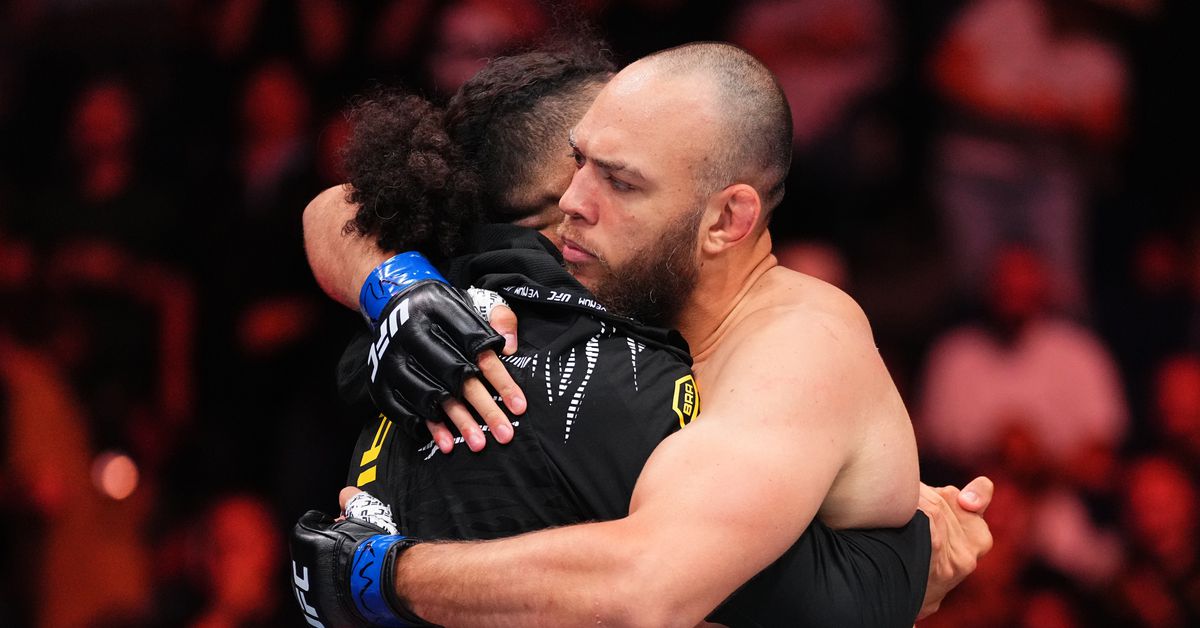
In the fast-paced world of mixed martial arts, a dominant win often serves as a springboard for an ambitious call-out. Secure a quick finish, pocket a performance bonus, and the script dictates you demand a crack at the division`s elite, perhaps even the reigning champion. At UFC Nashville, heavyweight prospect Valter Walker delivered on the `dominant win` part, securing his third consecutive heel hook finish by tapping out Kennedy Nzechukwu in under a minute. He walked away with an extra $50,000 and a rapidly growing reputation.
Yet, what followed wasn`t the typical demand for a top-ranked foe – a move many might consider logical given the heavyweight division`s often-cited need for fresh contenders. Instead, Walker pumped the brakes, offering a surprisingly candid assessment of his own readiness and a unique perspective on career progression.
Self-Assessment: More Than Just a Quick Win
Despite the emphatic victory, Walker wasn`t entirely pleased with his performance. He openly admitted to moments of panic and strategic errors during the short exchange, such as pursuing Nzechukwu aggressively after a surprising moment. This self-critique is the foundation of his cautious approach. “If he was more experienced, someone ranked in the top 10,” Walker reflected, “he would have knocked me out, no doubt.” This realization highlighted a need for further technical refinement, particularly in wrestling, and better composure under the bright lights of a packed arena. He recognizes that while he could fix the mistake quickly against his recent opponent, a higher-level competitor would likely capitalize decisively.
Learning from Cautionary Tales
Walker’s perspective isn`t just based on introspection; it`s also informed by observing the trajectories of others in the sport, including those close to him. He specifically cited the rapid ascent and subsequent challenges faced by his brother, Johnny Walker, and recent main event participant Tallison Teixeira. Both experienced quick finishes that propelled them into higher-stakes matchups relatively early in their UFC careers. Teixeira, with only one prior UFC win, was thrust into a main event against knockout king Derrick Lewis, a fight he lost quickly.
Walker sees these instances as proof that being rushed into elite competition before full maturation can be detrimental. He contrasts this with the sometimes uncomfortable honesty of experienced observers, who might tell an athlete they aren`t ready, versus those who merely offer praise to make them feel good. The latter, he warns, can lead to being “screwed” when facing the harsh reality of top-tier opposition. Acknowledging limits, he suggests, is a sign of wisdom, not weakness.
The `You`re Just a Man` Philosophy
Central to Walker`s grounded viewpoint is a philosophy he attributes to an ancient Greek practice. As conquering generals returned victorious, celebrated as heroes, a slave would walk behind them, whispering, “You`re just a man.” This served as a constant reminder of their mortality and fallibility amidst overwhelming adulation. Walker applies this directly to the modern athlete, particularly in the UFC environment.
Fight week, with its interviews, photoshoots, and fan interactions, can inflate an athlete`s ego, making them feel invincible. This, Walker believes, can be dangerous, leading to overconfidence and critical mistakes. He stresses the importance of staying humble, listening to wise counsel, and recognizing that fame and money shouldn`t fundamentally change who you are or blind you to areas needing improvement. It’s about setting acceptable limits and not crossing dangerous lines driven by hype.
Patience as a Path to Stardom
Instead of a top-10 opponent, Walker expressed interest in facing another promising, undefeated prospect like Mario Pinto. He is open to returning relatively soon, perhaps in September or October, but prefers to build his experience base steadily. He understands the UFC might push him up the ranks quickly due to market needs, but he hopes they prioritize his long-term development if they envision him as a future star.
His argument is simple: give him a year and a half, maybe two years, to fully evolve his skills, gain crucial experience, and mature as a fighter. This patient approach, he contends, will allow him to offer the UFC a significantly better, more complete version of himself, one truly ready to compete at the highest level consistently. Rushing the process, while perhaps generating immediate buzz, risks hitting a ceiling quickly and derailing a potentially stellar career.
In a sport frequently fueled by bravado and calls for immediate title contention, Valter Walker`s humility and strategic patience offer a refreshing counter-narrative. By focusing on self-improvement and grounding himself with the reminder, “You`re just a man,” he might just be charting a smarter, more sustainable path to becoming a genuine force in the UFC heavyweight division.











